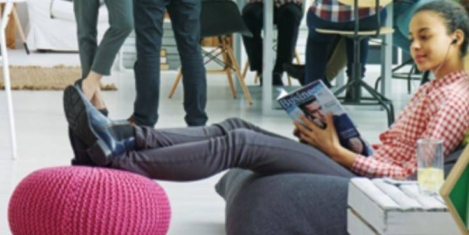April 2, 2018
Combination of factors means UK faces severe workforce crisis by 2025
 New projections published in Mercer’s Workforce Monitor predict that a perfect storm of falling net migration driven by Brexit and an ageing population, will lead to a severe shortage in the UK labour market. If these challenges are not met with immediate action by UK employers, they will face significant costs trying to attract workers with the leadership and skills they need to execute their business strategies. Mercer anticipates the UK workforce will increase by just 820,000, or 2.4 percent, by 2025, a significant reduction in recent trends that have seen 9 percent workforce growth in the 10 years to 2015. For the first time in half a century, the overall population will be increasing at a faster rate than the workforce, creating long term structural challenges for the economy.
New projections published in Mercer’s Workforce Monitor predict that a perfect storm of falling net migration driven by Brexit and an ageing population, will lead to a severe shortage in the UK labour market. If these challenges are not met with immediate action by UK employers, they will face significant costs trying to attract workers with the leadership and skills they need to execute their business strategies. Mercer anticipates the UK workforce will increase by just 820,000, or 2.4 percent, by 2025, a significant reduction in recent trends that have seen 9 percent workforce growth in the 10 years to 2015. For the first time in half a century, the overall population will be increasing at a faster rate than the workforce, creating long term structural challenges for the economy.











 It should come as little surprise that graduates who have undertaken an internship are more likely to have honed the skills businesses needs, one of the main findings of the Institute of Student Employers (ISE) annual Development Survey, which launches today (28 March 2018) at the ISE Student Development Conference. The report found that 63 percent of employers believed graduates who had undertaken work experience had the required soft skills, yet less than half (48 percent) thought this of graduates in general. According to the report the five most common graduate skills gaps are; managing up (5 percent of employers believed graduates had this skill); dealing with conflict (12 percent); negotiating/influencing (17 percent); commercial awareness (23 percent and resilience (31 percent). This is why closing skills gaps is a priority for businesses with 74 percent of employers taking specific actions to tackle the issue in 2017. Changes to recruitment and on-the-job training were the most common actions and 16 percent of organisations improved their internship development programmes specifically to close skills gaps.
It should come as little surprise that graduates who have undertaken an internship are more likely to have honed the skills businesses needs, one of the main findings of the Institute of Student Employers (ISE) annual Development Survey, which launches today (28 March 2018) at the ISE Student Development Conference. The report found that 63 percent of employers believed graduates who had undertaken work experience had the required soft skills, yet less than half (48 percent) thought this of graduates in general. According to the report the five most common graduate skills gaps are; managing up (5 percent of employers believed graduates had this skill); dealing with conflict (12 percent); negotiating/influencing (17 percent); commercial awareness (23 percent and resilience (31 percent). This is why closing skills gaps is a priority for businesses with 74 percent of employers taking specific actions to tackle the issue in 2017. Changes to recruitment and on-the-job training were the most common actions and 16 percent of organisations improved their internship development programmes specifically to close skills gaps.






 Over a third of workers are adversely affected by a lack of natural light in their office, others complain that the lighting is too bright and a significant proportion say the quality of light provided is so weak they struggle to read. This is according to a new poll which quizzed employees about the difficulties associated with workplace lighting and found that headaches and dizziness were a problem for one in seven. Other employees reported finding the lighting too bright and dazzling (12.4 percent), while one in 10 said they had to strain their eyes due to a general lack of light. A similar proportion said they were bothered by the position of the lights and by the ‘stressful environment’ created by their workplace lighting (9.3 percent each). The findings come as reports of ‘sick building syndrome’ — a condition associated with office work that causes symptoms including headaches and respiratory problems — continue to hit the headlines. Such symptoms are usually attributed to unhealthy or stressful elements of the working environment, such as poor ventilation and lighting.
Over a third of workers are adversely affected by a lack of natural light in their office, others complain that the lighting is too bright and a significant proportion say the quality of light provided is so weak they struggle to read. This is according to a new poll which quizzed employees about the difficulties associated with workplace lighting and found that headaches and dizziness were a problem for one in seven. Other employees reported finding the lighting too bright and dazzling (12.4 percent), while one in 10 said they had to strain their eyes due to a general lack of light. A similar proportion said they were bothered by the position of the lights and by the ‘stressful environment’ created by their workplace lighting (9.3 percent each). The findings come as reports of ‘sick building syndrome’ — a condition associated with office work that causes symptoms including headaches and respiratory problems — continue to hit the headlines. Such symptoms are usually attributed to unhealthy or stressful elements of the working environment, such as poor ventilation and lighting.


 The mental health of employees, especially those working within high pressured working environments are the number one concerns for UK CEOs. Nearly three quarters (73 percent) of respondents to the annual wellbeing report ‘
The mental health of employees, especially those working within high pressured working environments are the number one concerns for UK CEOs. Nearly three quarters (73 percent) of respondents to the annual wellbeing report ‘









April 2, 2018
Take up of shared parental leave is held back by cultural inertia
by Paul Kelly • Comment, Flexible working, Workplace
(more…)